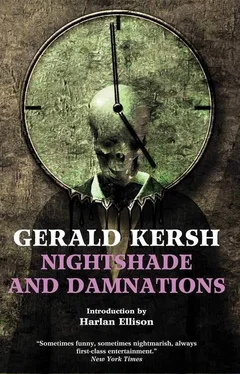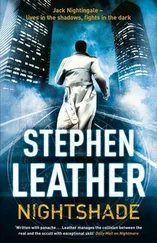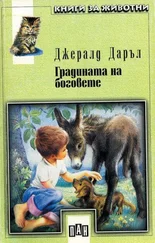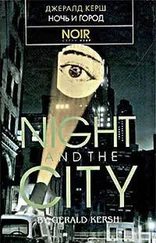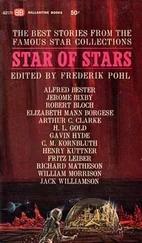Джералд Керш - Nightshade and Damnations
Здесь есть возможность читать онлайн «Джералд Керш - Nightshade and Damnations» весь текст электронной книги совершенно бесплатно (целиком полную версию без сокращений). В некоторых случаях можно слушать аудио, скачать через торрент в формате fb2 и присутствует краткое содержание. Город: Richmond, Год выпуска: 2013, Издательство: Valancourt Books, Жанр: Фантастика и фэнтези, на английском языке. Описание произведения, (предисловие) а так же отзывы посетителей доступны на портале библиотеки ЛибКат.
- Название:Nightshade and Damnations
- Автор:
- Издательство:Valancourt Books
- Жанр:
- Год:2013
- Город:Richmond
- ISBN:нет данных
- Рейтинг книги:3 / 5. Голосов: 1
-
Избранное:Добавить в избранное
- Отзывы:
-
Ваша оценка:
- 60
- 1
- 2
- 3
- 4
- 5
Nightshade and Damnations: краткое содержание, описание и аннотация
Предлагаем к чтению аннотацию, описание, краткое содержание или предисловие (зависит от того, что написал сам автор книги «Nightshade and Damnations»). Если вы не нашли необходимую информацию о книге — напишите в комментариях, мы постараемся отыскать её.
Nightshade and Damnations — читать онлайн бесплатно полную книгу (весь текст) целиком
Ниже представлен текст книги, разбитый по страницам. Система сохранения места последней прочитанной страницы, позволяет с удобством читать онлайн бесплатно книгу «Nightshade and Damnations», без необходимости каждый раз заново искать на чём Вы остановились. Поставьте закладку, и сможете в любой момент перейти на страницу, на которой закончили чтение.
Интервал:
Закладка:
The little people hate the cold, it appears.
Now if they are sensitive to cold and hunger, as all the stories indicate, they must be people of flesh and blood. Why not? There are all kinds of people. There is no reason why, in the remote past, certain people should not have gone to live underground, out of the reach of fierce and powerful enemies. For example, there used to be a race of little men in north Britain called the Picts. History records them as fierce and cunning little border raiders—men of the heather, who harried the Roman garrisons in ancient times and stole whatever they could lay their hands on. These Picts—like the African bushmen who, by the way, were also very little people—could move so quickly and surely that they seemed to have a miraculous gift of invisibility. In broad daylight a Pict could disappear, and not a single heather-blossom quivered over his hiding place. The Picts disappeared off the face of the earth at last. Yet, for centuries, in certain parts of Scotland, the farmers and shepherds continued to fear them. They were supposed to have gone underground, into the caves, from whence they sometimes emerged to carry off a sheep, a woman, a cooking-pot or a child.
Superstition turned these small, terrified creatures into fairies. In Cornwall again, many people used to believe in piskies—little creatures with big eyes, who wrapped themselves up in garments with pointed hoods and whom it was wise to placate with bowls of milk. It seems to me not unreasonable to assume that, during the long, drawn out periods of strife on the western borders of Britain, certain little weak people went underground, and made a new life for themselves secure in the darkness of the caves. Living in the dark, of course, they would grow pale. After many generations they would have developed a cat’s faculty for seeing in the dark. And for feeling their way they would have developed a bushman’s knack of disappearing—of keeping absolutely still in cover. But they were human beings and could not entirely divorce themselves from their fellows; so they stayed—half-yearning, and half-terrified—not far from ordinary human habitation. The little people are supposed to know the whereabouts of great buried treasures. This also is possible. Their remote ancestors may have taken their riches with them to bury, meaning to unearth them in safer times which never came. Again, these strange underground men, who knew every stone, every tree, and every tuft of grass in their country, may easily have come across treasures buried by other men. They would have retained the human instinct to pick up and carry away something bright or valuable, and so they carried everything that they found to the mysterious places below the surface of the earth where they lived their mysterious lives; and since they had no real use for the money they had acquired, they let it accumulate. In how many fairy tales has one read of the well-disposed little one who left behind him a bright gold coin.
I am convinced that ever since frightened men began to run away and hide, there have been little people, in other words, fairies. And such was the drooling, nightmarish little thing that trembled in my grip that night in the tent.
I remembered, then, how frightened I had been. As I thought of all the awe that such creatures had inspired through the ages, I began to laugh. The little man—I had better call him a man—listened to me. He stopped whimpering. His ears quivered, then he gave out a queer, breathless, hiccuping sound, faint as the ticking of a clock. “Are you human?” I asked.
He trembled, and laboriously made two noises: “ Oon - ern .”
He was trying to repeat what I had said. I led him to an angle of the tent so that he could not escape, and tied up his wrist with an elastic plaster. He looked at it, gibbering. Then I gave him a piece of highly-sweetened chocolate. He was afraid of that too. I bit off a corner and chewed it, saying, “Good. Eat.”
I was absurdly confident that, somehow, he would understand me. He tried to say what I had said— Oo - ee , and crammed the chocolate into his mouth. For half a second he slobbered, twitching with delight, then the chocolate was gone. I patted his head. The touch of it made me shudder, yet I forced my hand to a caress. I was the first man on earth who had ever captured a fairy: I would have taken him to my bosom. I smiled at him. He blinked at me. I could see by the movement of his famished little chest that he was a little less afraid of me. I found another piece of chocolate and offered it to him. But in doing so, I lowered my flashlight. The chocolate was flicked out of my hand. I was aware of something that bobbed away and ran between my legs. Before I could turn, the little man was gone. The flap of the tent was moving. If it had not been for that, and a stale, dirty smell, I might have thought I had been dreaming.
I turned the beam of my flashlight to the ground.
This time, the little man had left tracks.
As I was to discover, the little people of The Dead Place used to cover their tracks by running backwards on all fours and blowing dust over the marks their hands and feet had made. But my little man had not had time to do this tonight.
Dawn was beginning to break. I filled my pockets with food and set out. Nothing was too light to leave a mark in that place, but the same quality that made the fine dust receptive made every mark impermanent. I began to run. The little man’s tracks resembled those of a gigantic mole. The red dust sun was up and the heat of the day was coming down, when I came to the end of his trail. He had scuttled under a great, gray heap of shattered stone. This had been a vast—possibly a noble—building. Now it was a rubbish heap; packed tight by the inexorable pull of the earth through the centuries. Here was fairyland, somewhere in the depths of the earth.
Enormous edifices had been crushed and scattered like burnt biscuits thrown to the wild birds. The crumbs were identifiable. The shape of the whole was utterly lost. The loneliness was awful. Inch by inch I felt myself slipping into that spiritual twilight which sucks down to the black night of the soul. The tracks of the little man had disappeared—the dust was always drifting, and the contours of the lost city were perpetually changing. Yesterday was a memory. Tomorrow was a dream. Then tomorrow became yesterday—a memory; and memory blurred and twirled away with the dust devils. I was sick. There was a bad air in the ruins of Annan. I might have died, or run away, if there had not been the thunderstorm.
It threatened for forty-eight hours. I thought that I was delirious. Everything was still, dreadfully still. The air was thick, and hard to breathe. It seemed to me that from some indefinable part of the near distance I heard again that thin, agonized singing which I had heard once before. Male and female voices wailed a sort of hymn:—
Aaah, Balasamo,
Balasamo! Oh!
Sarna Corpano! . . . Oh-Oh!
Binno Mosha
Sada Rosha
Chu mila Balasamo! . . . Oh!
Then the storm broke, and I thanked God for it. It cleared the air and it cleared my head. The sky seemed to shake and reverberate like a sheet of iron. Lightning feinted and struck, and the rain fell. Between the thunder I could still hear the singing. As dawn came the storm rumbled away, and the aspect of the ruins was changed.
Annan wore a ragged veil of mist. Thin mud was running away between the broken stones. The sun was coming up and in a little while the dust would return; but for the moment the rain had washed the face of the ruin.
So I found the lid of the underworld.
It was a disc of eroded metal that fitted a hole in the ground. I struck it with my hammer: it fell to pieces. The pieces dropped away, and out of the hole in the ground there rose a dusty, sickening, yet familiar smell. The hole was the mouth of an ancient sewer. I could see the rusty remains of a metal ladder. The top rung was solid—I tried it with my foot. The next rung supported my weight. I went down.
Читать дальшеИнтервал:
Закладка:
Похожие книги на «Nightshade and Damnations»
Представляем Вашему вниманию похожие книги на «Nightshade and Damnations» списком для выбора. Мы отобрали схожую по названию и смыслу литературу в надежде предоставить читателям больше вариантов отыскать новые, интересные, ещё непрочитанные произведения.
Обсуждение, отзывы о книге «Nightshade and Damnations» и просто собственные мнения читателей. Оставьте ваши комментарии, напишите, что Вы думаете о произведении, его смысле или главных героях. Укажите что конкретно понравилось, а что нет, и почему Вы так считаете.
